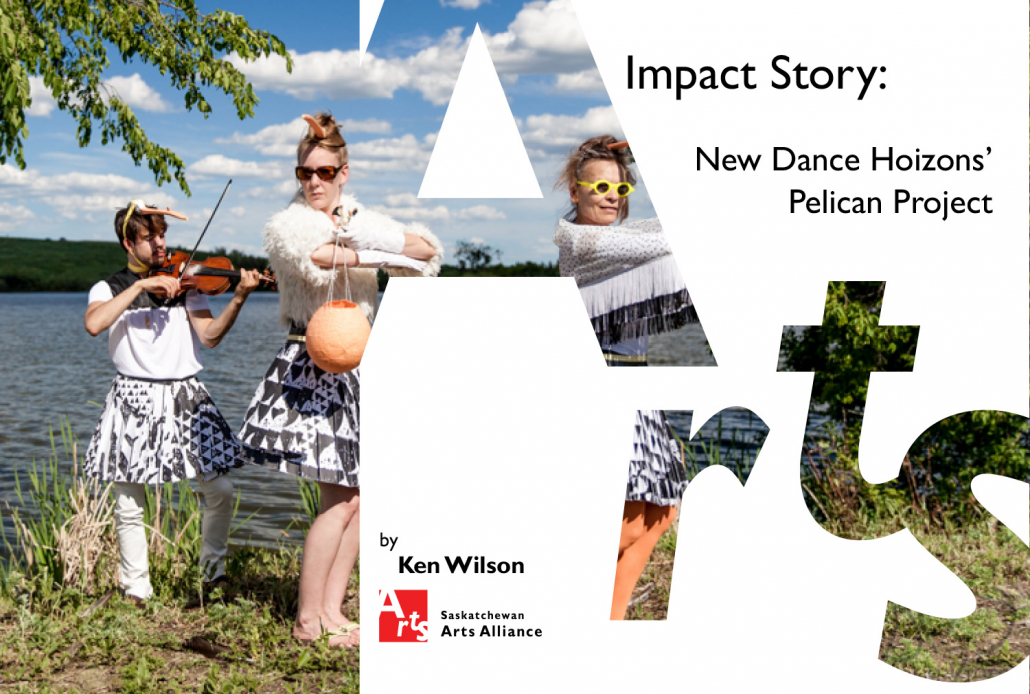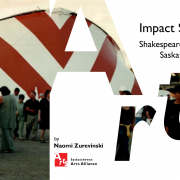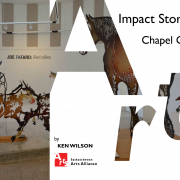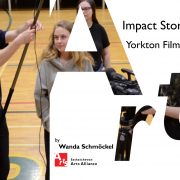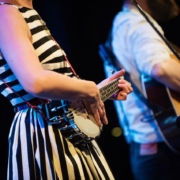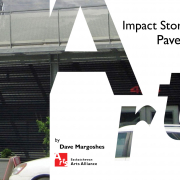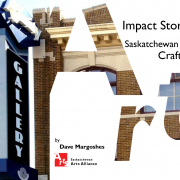Art Works – New Dance Horizons’ Pelican Project
SAA Art Works – June 2018
Each month SAA posts an Art Works article highlighting an arts organization making a positive impact in its community. This June, SAA features New Dance Horizons’ Pelican Project. This year, the project will be travelling to Vancouver to create a procession with the theme of the great blue heron. This article was written by Ken Wilson.
Robin Poitras, the Artistic Director of Regina’s New Dance Horizons, a contemporary dance organization, generates ideas the way a Catherine wheel throws off sparks. “We’re deeply embedded in community, in landscapes, in history,” she says. “We work across disciplines, across cultures, across generations. Dance is fundamentally an interdisciplinary art form, and interdisciplinary is a premise for cultural dialogue.” One example of that commitment to working across disciplines, cultures, and generations is the Pelican Project, which celebrates its twentieth anniversary in 2018. Poitras has been fascinated with pelicans and processions since she was a child, and the first processions New Dance Horizons organized took the birds as their theme. Now, the Pelican Project has become an umbrella term for any performances they organize that take the form of a procession—and what makes these processions unique is that most of the participants are children. “Our job as cultural organizations is to bring the deepest possible and most diverse range of experiential learning we have the capacity to offer,” Poitras argues. “It’s about providing an opportunity for deep connections.” And that’s what the Pelican Project sets out to do.
The first Pelican Project procession was staged in 1998, at the Lanterns on the Lake festival in Regina. There have been about 50 processions since then, in Regina, Moose Jaw, Yorkton, Fort Qu’Appelle, and outside Saskatchewan as well. The most recent, a procession with children dressed as animals—horses and bison—and carrying lanterns that represented different kinds of fruit that grow on the prairies, took place at Culture Days in Regina in the fall of 2017, in partnership with another arts organization, Prairie Puppet Underground. The Pelican Project has been invited to create another procession in Vancouver in the summer of 2018. Because pelicans don’t nest in Vancouver, the theme of that procession will be the great blue heron.
The Pelican Project is part of New Dance Horizons’ learning and teaching series—the outreach work it does in the community. The organization offers a variety of classes that allow people of all ages and abilities to learn something about dance and physical movement, and that enable artists to learn to teach their art forms in a holistic way, instead of simply teaching the technical aspects of their art. The processions that constitute the Pelican Project give children opportunities to learn dance, music, and visual arts in an interconnected and interdisciplinary fashion, where the focus is on engaging each child’s creativity rather than on technical instruction. “If you come in to the Pelican Project as a child, you might become an artist as a result of that early holistic exposure to the art form,” Poitras contends. The project is always led by facilitators who are established artists in their own right. “They may have different levels of experience, but that core of established artists is always present,” she notes.
In the Pelican Project, the creative process is everything. Before the processions, children work at making their own props and costumes. Their materials include clay, paper, fabric, and wood; they make masks, origami, musical instruments, and lanterns. They learn to play music; there’s instruction on the fiddle, the ukulele, the guitar. They write songs together, which they sing during the procession. As a result, the children experience multiple learning opportunities. “It’s an exploration,” Poitras says. “It’s not rote learning. It’s about really deeply playing.”
For Poitras, the Pelican Project is a way to engage and strengthen curiosity in children. “Art is about curiosity,” she insists. “Artists hold the space for curiosity, imagination, and intuition—and these are vital qualities.” It’s not only the children who learn by participating in the Pelican Project, either. “This project keeps teaching me,” Poitras smiles.
